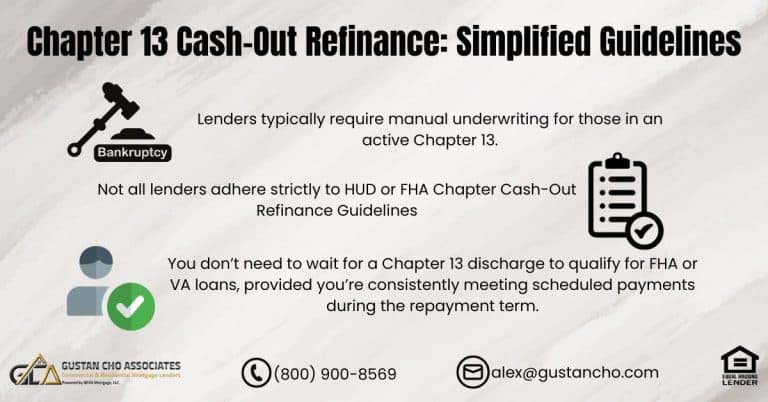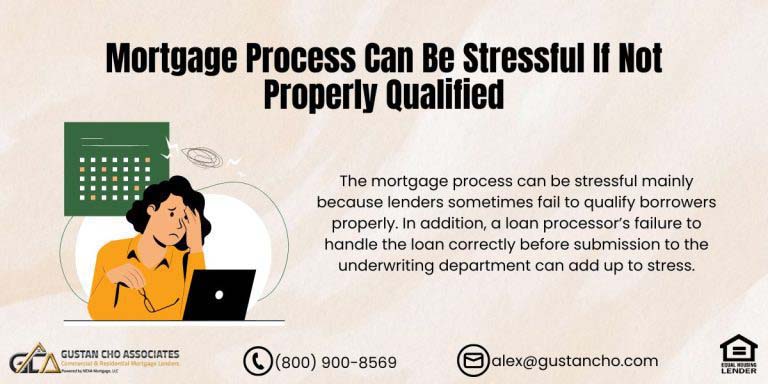Mortgage borrowers can make innocent mistakes during the loan approval process. These mistakes can delay the loan closing or even wipe out a mortgage approval.
- Borrowers should avoid changing jobs.
- It’s not a good idea to apply for new credit or increase credit balances.
- Buying a new car is one of the worst things borrowers can do when applying for a mortgage.
Avoiding these and other mistakes can help borrowers close on time.
Prequalify for your mortgage in about five minutes.
Mortgage Approval Is Not Final
When you apply for a mortgage, underwriters examine your finances. That means your income, bank deposits, investments and retirement accounts, your credit history and your debts. Once they have completed their analysis, they(hopefully) issue a loan approval.
That approval is not cast in concrete, however. Lenders double check your employment, credit and debts before clearing you to close. Any changes to your profile can stall your approval and send the loan back into underwriting. They can even cause the loan to be denied.
Avoid Changing Jobs and Loan Closing Delays
The mortgage approval process can take anywhere between 15 and 60 days. A change of jobs during the mortgage approval process can cause a mortgage loan denial — or at best, a delay in closing.
Changing jobs can have severe consequences during the mortgage process. Giving notice that the borrower is going to retire can kill the deal. Lenders do multiple verifications of employment (VOE) during the mortgage process. A final verbal VOE will be done prior to the clear to close.
The only good job change is one in which you are in the same field and the new position comes with an increase in pay and/or responsibility.
Resigning without a new job will delay your closing
You should not quit a job before you have signed your final documents and closed your home loan. Your lender will re-verify your employment before clearing you to close. Lenders always ask employers if your employment is likely to continue for the next three years. Don’t tell anyone if you’re planning to retire any time soon.
Lenders verify employment more than once
Applicants with conditional mortgage loan approval and then quit their jobs prior to closing can lose their loan.
Avoid quitting your job to start a new one if possible. It will always cause a delay because the underwriter will have to reverify your employment and recalculate your debt-to-income ratios. If you are not under time pressure and the new job is better, it may be okay to change.
But if the new job is in a new field for you, or the pay is less, red flags will fly.
What happens to your mortgage application if you change jobs?
Lenders require at least 30 days of paystubs and a verification of employment (VOE) from the new employer when changing jobs:
- If your start date is in the future, you can use an offer letter and VOE to qualify for your loan.
- Verifying the new employment could delay your closing by 30 days or more.
- Anything about the new job that underwriters believe could harm your ability to pay your mortgage could kill your loan approval.
A job transfer from one location to another location within the same corporate umbrella will have no effect on the mortgage approval process as long as your earnings don’t drop.
Don’t Apply for New Credit or Increase Debt
Credit inquiries drop credit scores by two to five points. Avoid applying for new credit during the loan process.
- Expect to explain every new inquiry with a letter to your lender. Are you shopping for additional credit? Did the creditor approve your application? How much additional credit did you get?
- Avoid applying for new credit because underwriters will become concerned about an increase to your debt-to-income ratio (DTI).
- Avoid increasing the balances of your existing accounts. Lenders do check your credit again before closing and bigger balances mean increased DTI.
You may be tempted by furniture stores or other creditors offering zero-interest credit and other goodies. Don’t even consider them until you have signed your final loan documents and the title office records the loan.
Consumers who apply for multiple credit cards may trigger lower credit scores. However, the original credit score that was pulled originally by the mortgage lender is usually good for 120 days. However, new debt may disqualify you if it pushes your DTI too high. In addition, if your new credit score falls below the minimum credit scores required, you’ll lose your loan approval.
Never close out active accounts
Many consumers close out credit cards they no longer use. They try to limit the number of credit cards they have. This is a major mistake because it affects your utilization ratio, which makes up 30% of your credit score. If you have $2,000 in credit card debt and your credit limits total $10,000, your utilization is a respectable 20% ($2,000 / $10,000 = .2).
But if you close out a couple of unused cards and now your total credit limit is $2,500, your utilization jumps to a problematic 80%! That will definitely cause your credit score to drop. Don’t risk it.
Avoid increasing credit balances
You should not increase your credit balances prior to or during the mortgage approval process. Increasing your credit balances also raises your utilization ratio. It also increases your DTI because bigger balances equals larger payments.
Try to keep your utilization under 30%. Under 20% is even better.
Loan Closing Mistakes: New Car Purchases Are the Worst!
Applying for a car loan before closing your mortgage is one of the worst mistakes you can make. One big reason for this is the way car dealers shop your auto loan around. They send your application to multiple lenders who may each pull your credit report. That’s a lot of inquiries hitting your score and requiring an explanation from you.
And a new car payment affects your DTI, throws your application back into underwriting and can even derail your loan entirely.
Car Payment Will Lower Home-Buying Power
Many buyers have lost their dream homes because of new car payments. One of the biggest mistakes you can make is purchasing a car in the months before applying for a home loan. If you find yourself needing a new car while you’re in escrow, and your DTI is not super-low, try to wait. Car pool, use a ride-share service or take public transportation if you can. Rent a car if you have to.
Your other option is to make sure the new payment is no higher than your current payment. Use your trade-in, extend the loan term, buy a cheaper car or put more money down to keep that payment under control.
Banking Problems
Lenders require two months of bank statements. Lenders do not want to see any overdrafts and irregular deposits in the bank account. Make sure you have overdraft protection on all of the bank accounts. One or two overdrafts might not always be deal killers if you have a good explanation for them. But multiple habitual overdrafts can be grounds for loan denial.
Don’t bounce checks!
Mortgage lenders view overdrafts as examples of financial irresponsibility. Many folks, especially business owners, are accustomed to paying overdraft fees. They may view overdrafts as cash flow management or a cost of doing business. But most underwriters view even a $5.00 overdraft as a credit risk. Keep the overdrafts away during the months before applying for a home loan.
Changing bank accounts during escrow
It’s also better to avoid opening and/or closing bank accounts. Underwriters require bank statements and they will source every irregular deposit. If your lender sends a verification of deposit (VOD) form to your bank, and they indicate the account is closed,
Large and irregular deposits
All irregular and/or large deposits in the past 60 days need to be sourced and documented. Underwriters will ask the source of all irregular deposits:
Irregular deposits are usually substantially larger than usual. If your average bank balance is, say, $25,000, and you have a $80,000 deposit, you’ll have some explaining to do.
Underwriters want to make sure that your down payment comes from an approved source.
Borrowers cannot use undocumented cash or loan proceeds for a home purchase down payment. Borrowers who want to avoid sourcing undocumented funds can do so by depositing funds in their bank account and leaving it alone for at least 60 days.
Remember that the mortgage lender only require 60 days of bank statements. For borrowers with undocumented cash or funds that cannot be sourced, it is strongly recommended they deposit it to a bank account. Let the funds season for at least two months prior to the mortgage approval process.
Down Payment Sources
Lenders always verify the source of your down payment when you purchase a home. Down payments can only come from an approved source — like the borrower’s savings, gifts from friends or relatives, proceeds from the sale of an asset, or an approved down payment assistance (DPA) program.
You can’t usually borrow your down payment (although you can borrow against your retirement account), and it can never come from someone who will benefit from your home purchase like the seller, Realtor or loan officer.
Once the lender verifies your down payment — for instance by checking your bank statements, you should not change it. Don’t tell your lender that your down payment is coming from your savings and then decide to sell your baseball card instead at the last minute.
Experienced Loan Officers Can Keep You Out of Trouble
An experienced and smart loan officer can help borrowers avoid these and other mistakes during the loan process. Homebuyers who need to qualify for a mortgage with a lender with no mortgage overlays can contact us at Gustan Cho Associates at 800-900-8569. Or text us for a faster response. You can also email us at gcho@gustancho.com.









